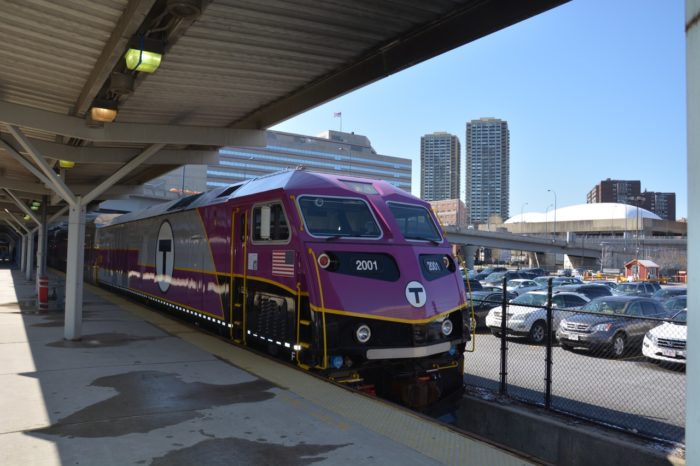The Pacheco Law wastes enough money to buy a brand new fleet of commuter rail locomotives
Pioneer released a report this morning demonstrating that the Pacheco Law (MGL Chapter 7, Sections 52-54) has cost the MBTA $450 million since 1997. That’s a big number, and big numbers can be pretty abstract. So let’s flesh it out to gain perspective on what the Pacheco Law’s restrictions really mean to MBTA riders.
Last winter, more than 1.6 million commuter trips were either cancelled or delayed, stranding and frustrating MBTA commuters. The following chart shows the two month collapse of commuter rail service between January 23rd and March 20th.
Would repealing the law’s hold on the MBTA do anything to address that? Well, Keolis largely attributed its poor performance to an aging fleet of locomotives, many of which are beyond their estimated 25-year lifespan. Keolis’ performance continues to disappoint this spring, and their excuse has not changed.
One way to think of the law’s impact is to observe that the MBTA could have replaced its entire fleet of commuter rail locomotives with less than a quarter of the $450 million wasted by the Pacheco Law.
The MBTA’s 2015-2019 capital investment budget includes funding for the purchase of commuter rail locomotives at a cost of $6.05 million per locomotive. The federal government reimburses 80% of the cost of locomotive purchases, leaving the MBTA with a cost of $1.21 million per locomotive. Therefore, replacing all 87 of the MBTA’s locomotives would have cost the MBTA $105.35 million, less than a quarter of the lost savings directly attributable to the Pacheco Law.
Allowing the Pacheco law to continue to govern the MBTA’s operations is not an accounting abstraction; the losses attributable to the law’s restrictive nature have real life consequences for an agency that has had trouble keeping up with its maintenance costs.
What else would be possible with this lost treasure? How many improvements, upgrades, replacements and refurbishments have been foregone in the name of an anti-competitive law?
Scott Haller is a student at Northeastern University working at Pioneer Institute through the Co-op Program.




